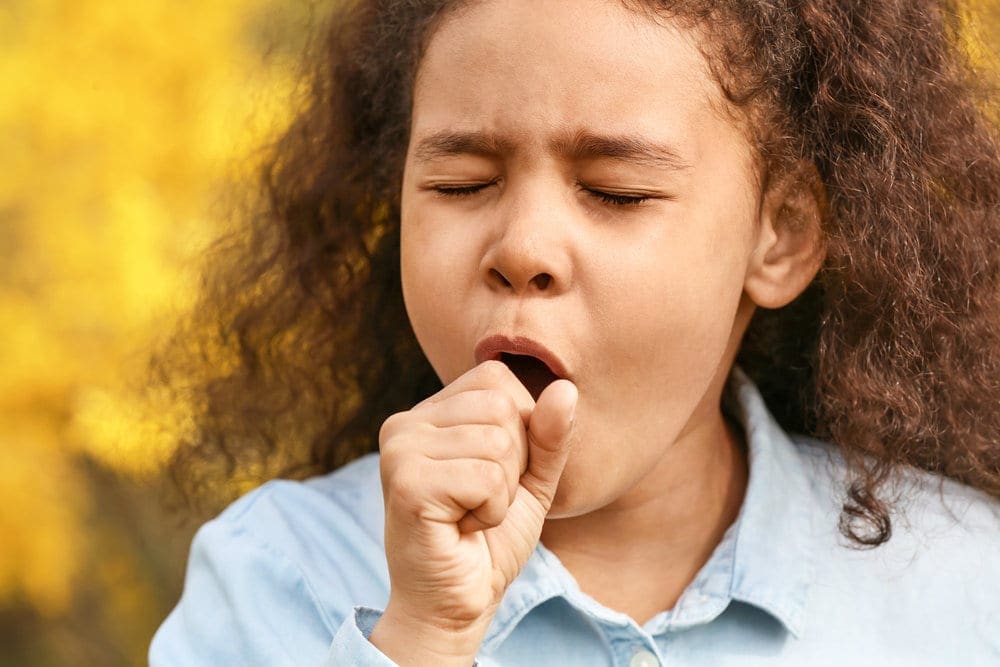Whooping cough (pertussis) is a bacterial infection of the lungs and breathing tubes. It spreads very easily and can sometimes cause serious problems. It’s important for babies and children to get vaccinated against it.
What are the symptoms?
A runny nose and sore throat are typically the first symptoms of whooping cough, but after about a week, coughing bouts can develop that last for a few minutes and are generally worse at night.
When a baby coughs, he or she may also make a distinctive “whoop” or have difficulty breathing.
How many cases have there been?
Five babies have died after being diagnosed with whooping cough amid a rise in cases across England.
The UK Health Security Agency (UKHSA) reported 1,319 cases in England in March, after just over 900 in February, making the 2024 total nearly 2,800.
It fears this year could see lots of the bacterial infection. The last peak year, 2016, had 5,949 cases in England.
The infection can be particularly serious for babies and infants.
Half of cases seen so far this year have been in the under-15s, with the highest rates in babies under three months of age.
The five babies who died this year were all under three months old. These are the first deaths since 2019.
Why are cases rising?
Pertussis is a cyclical disease that peaks every 3 to 5 years, and is also known as the 100-day cough.
UKHSA has said a steady decline in uptake of the vaccine and the very low numbers seen during the pandemic, as happened with other infections because of restrictions and public behaviour, were both factors in the rise in cases.
A peak year is therefore overdue, according to the agency.
92.9% of two-year-olds in September 2023 completed their routine six-in-one vaccinations, which include protection against pertussis, compared with 96.3% in March 2014.
The rate of women receiving the maternal pertussis vaccine dropped from more than 70% in September 2017 to about 58% in September 2023, as well.
Getting vaccinated while pregnant provides some protection to babies in the first months of life.
What can people do to protect themselves?
It is recommended that pregnant women get vaccinated against whooping cough so their babies will be protected until they can get vaccinated themselves.
Children who have not been vaccinated can still get the jab up to the age of 10.
Vaccination does not provide lifelong immunity against the disease, but subsequent infections tend to be mild.
The whooping cough vaccine is routinely given to babies as part of the 6-in-1 vaccine at eight, 12 and 16 weeks.
It is also part of the 4-in-1 pre-school booster given to children at 3 years and 4 months.
How is whooping cough treated?
Antibiotics will be prescribed if whooping cough is diagnosed within three weeks.
According to the NHS, people with whooping cough who have had it for longer than that are not contagious and don’t require antibiotics.
You should stay away from school, work, and nursery for 48 hours after starting antibiotics, or for three weeks if you haven’t started antibiotics.
The NHS advises getting plenty of rest and fluids to treat the symptoms of whooping cough.
Paracetamol and ibuprofen may help – although they’re not to be given at the same time to under-16s – but cough medicine does not help with this type of cough.
What should you do if you or your child have symptoms?
NHS advises you should ask for an urgent GP appointment or call NHS 111 if:
- you have a baby under six months with whooping cough symptoms
- you’re pregnant and have been in contact with someone with whooping cough
- you (or your child) has a weakened immune system and have been in contact with someone with whooping cough
- you or your child has a very bad cough that is getting worse
You should call 999 or go to A&E if:
- your or your child’s lips, tongue, face or skin suddenly turn blue or grey (on black or brown skin this may be easier to see on the palms of the hands or the soles of the feet)
- you or your child are finding it hard to breathe properly
- you or your child have chest pain that’s worse when breathing or coughing – this could be a sign of pneumonia
- your child is having seizures (fits).
